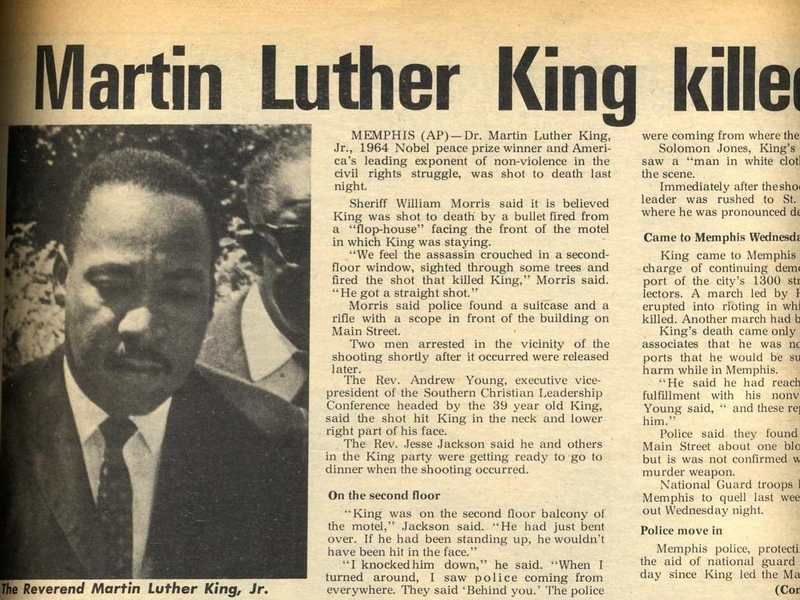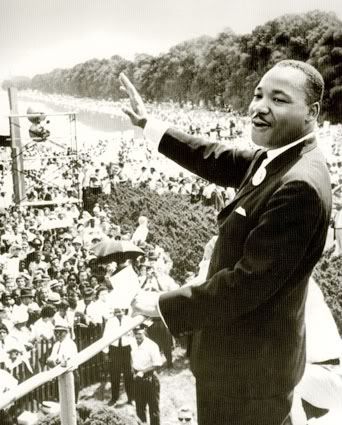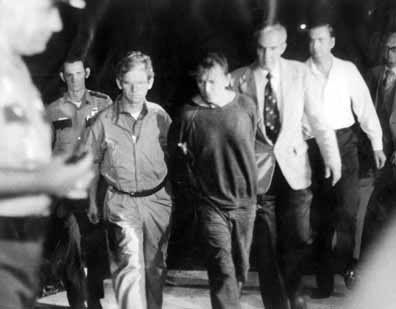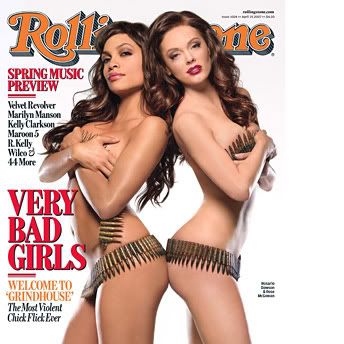
http://www.detnews.com/apps/pbcs.dll/article?AID=/20070404/LIFESTYLE/704040416/1033/ENT01
Detroit reacts to King's assassination
On April 4, 1968, Martin Luther King Jr. was assassinated as he stood on a motel balcony in Memphis, Tenn., where he had gone to lead a civil rights march.
The following day, Michigan Gov. George Romney declared an official period of mourning for King. The period extended through King's funeral. Romney ordered all flags on public buildings to be flown at half staff and asked that the same be done on private buildings. Gov. Romney, in an official statement, said: "The assassination of Martin Luther King is a great national tragedy. At a time when we need aggressive nonviolent leadership to peacefully achieve equal rights, equal opportunities and equal responsibilities for all, his leadership will be grievously missed."
A state of emergency was declared and curfew ordered. Despite outbreaks of violence in other cities, brokenhearted Detroiters, in keeping with King's teachings of nonviolence, remained calm. There were sporadic disorders that closed Cooley and Southwestern high schools, and several auto plants reported scattered walkouts on the day after the assassination. Small crowds formed along 12th Street in Detroit, in the heart of the previous summer's riot area, but were dispersed by police without incident.
By day four, thousands of auto workers stayed away from their jobs in memory of King, forcing the Big Three to close many plants in Michigan and in other parts of the nation. In New York, stock exchanges, banks and firms closed in tribute to King. It was the first time the New York Stock Exchange had closed for a full day for the death of a private citizen.

The Martin Luther King you don't see on TV
http://www.freepress.org/columns/display/5/2007/1518
It's become a TV ritual: Every year on April 4, as Americans commemorate Martin Luther King's death, we get perfunctory network news reports about "the slain civil rights leader."
The remarkable thing about these reviews of King's life is that several years - his last years - are totally missing, as if flushed down a memory hole.
What TV viewers see is a closed loop of familiar file footage: King battling desegregation in Birmingham (1963); reciting his dream of racial harmony at the rally in Washington (1963); marching for voting rights in Selma, Alabama (1965); and finally, lying dead on the motel balcony in Memphis (1968).
An alert viewer might notice that the chronology jumps from 1965 to 1968. Yet King didn't take a sabbatical near the end of his life. In fact, he was speaking and organizing as diligently as ever.
Almost all of those speeches were filmed or taped. But they're not shown today on TV.
Why?
It's because national news media have never come to terms with what Martin Luther King Jr. stood for during his final years.
In the early 1960s, when King focused his challenge on legalized racial discrimination in the South, most major media were his allies. Network TV and national publications graphically showed the police dogs and bullwhips and cattle prods used against Southern blacks who sought the right to vote or to eat at a public lunch counter.
But after passage of civil rights acts in 1964 and 1965, King began challenging the nation's fundamental priorities. He maintained that civil rights laws were empty without "human rights" - including economic rights. For people too poor to eat at a restaurant or afford a decent home, King said, anti-discrimination laws were hollow.
Noting that a majority of Americans below the poverty line were white, King developed a class perspective. He decried the huge income gaps between rich and poor, and called for "radical changes in the structure of our society" to redistribute wealth and power.
"True compassion," King declared, "is more than flinging a coin to a beggar; it comes to see that an edifice which produces beggars needs restructuring."
By 1967, King had also become the country's most prominent opponent of the Vietnam War, and a staunch critic of overall U.S. foreign policy, which he deemed militaristic. In his "Beyond Vietnam" speech delivered at New York's Riverside Church on April 4, 1967 –– a year to the day before he was murdered –– King called the United States "the greatest purveyor of violence in the world today." (Full text/audio here: http://www.informationclearinghouse.info/article2564.htm)
From Vietnam to South Africa to Latin America, King said, the U.S. was "on the wrong side of a world revolution." King questioned "our alliance with the landed gentry of Latin America," and asked why the U.S. was suppressing revolutions "of the shirtless and barefoot people" in the Third World, instead of supporting them.
In foreign policy, King also offered an economic critique, complaining about "capitalists of the West investing huge sums of money in Asia, Africa and South America, only to take the profits out with no concern for the social betterment of the countries."
You haven't heard the "Beyond Vietnam" speech on network news retrospectives, but national media heard it loud and clear back in 1967 - and loudly denounced it. Time magazine called it "demagogic slander that sounded like a script for Radio Hanoi." The Washington Post patronized that "King has diminished his usefulness to his cause, his country, his people."
In his last months, King was organizing the most militant project of his life: the Poor People's Campaign. He crisscrossed the country to assemble "a multiracial army of the poor" that would descend on Washington - engaging in nonviolent civil disobedience at the Capitol, if need be - until Congress enacted a poor people's bill of rights. Reader's Digest warned of an "insurrection."
King's economic bill of rights called for massive government jobs programs to rebuild America's cities. He saw a crying need to confront a Congress that had demonstrated its "hostility to the poor" - appropriating "military funds with alacrity and generosity," but providing "poverty funds with miserliness."
How familiar that sounds today, nearly 40 years after King's efforts on behalf of the poor people's mobilization were cut short by an assassin's bullet.
In 2007, in this nation of immense wealth, the White House and most in Congress continue to accept the perpetuation of poverty. They fund foreign wars with "alacrity and generosity," while being miserly in dispensing funds for education and healthcare and environmental cleanup.
And those priorities are largely unquestioned by mainstream media. No surprise that they tell us so little about the last years of Martin Luther King's life.
Co-written by Jeff Cohen. Jeff Cohen is the author of "Cable News Confidential: My Misadventures in Corporate Media." Norman Solomon's book "War Made Easy: How Presidents and Pundits Keep Spinning Us to Death" is out in paperback.

James Earl Ray
Assassin
Civil rights leader Martin Luther King Jr. was assassinated on 4 April 1968 in Memphis, Tennessee. Two months later James Earl Ray, an American with a record as a petty criminal, was apprehended in England and charged with killing King. Ray pled guilty to the charge in 1969 and was sentenced to 99 years in prison. However, Ray quickly recanted his guilty plea, and by the 1990s his continued requests for a new trial had gained fresh life; a Memphis bar owner named Loyd Jowers even claimed that he participated in a plot to kill King. King's son Dexter met with Ray in 1997 and publicly supported him, and the next year Attorney General Janet Reno ordered a full review of the case. That review ended in 2000 with a finding that "no credible evidence" existed to support the claims of Jowers or the various other conspiracy theories. Ray died in prison in 1998.

In the end, we will remember not the words of our enemies, but the silence of our friends.
Martin Luther King Jr.












![Brotherhood" (2006) [TV-Series]](http://photos1.blogger.com/x/blogger2/1421/379621144723082/211/z/425926/gse_multipart33129.jpg)







No comments:
Post a Comment